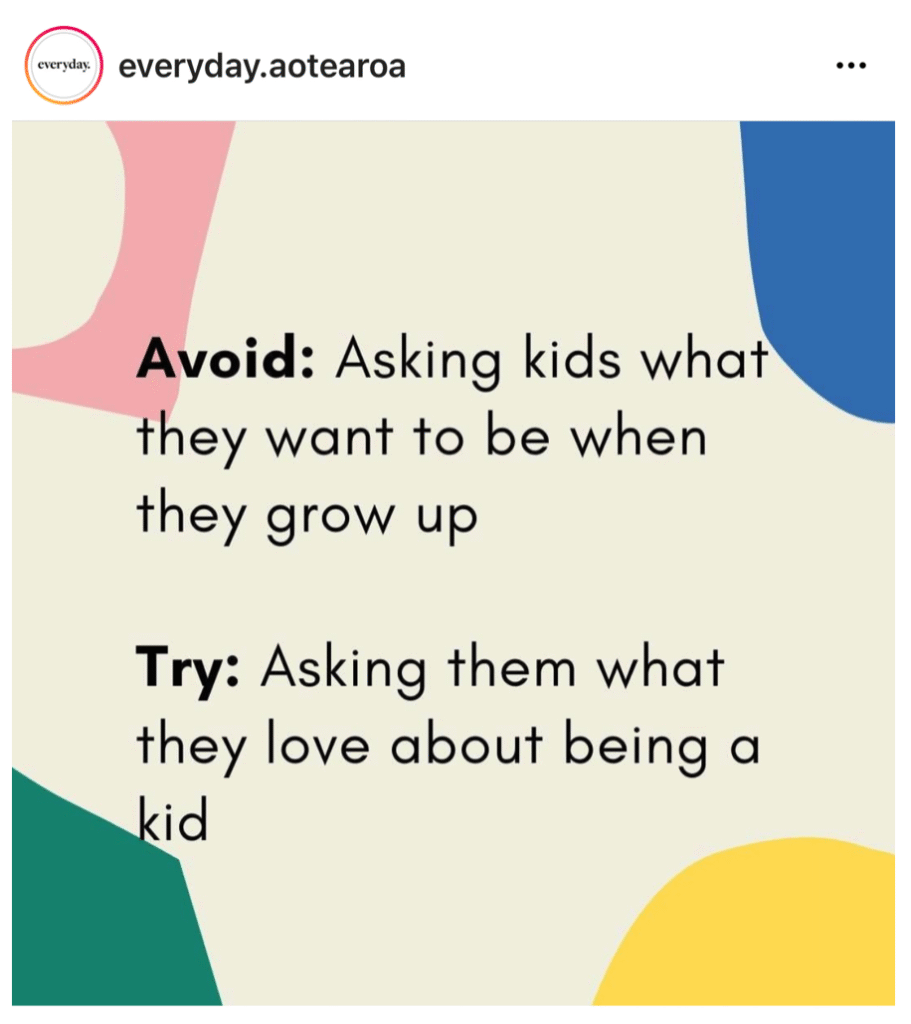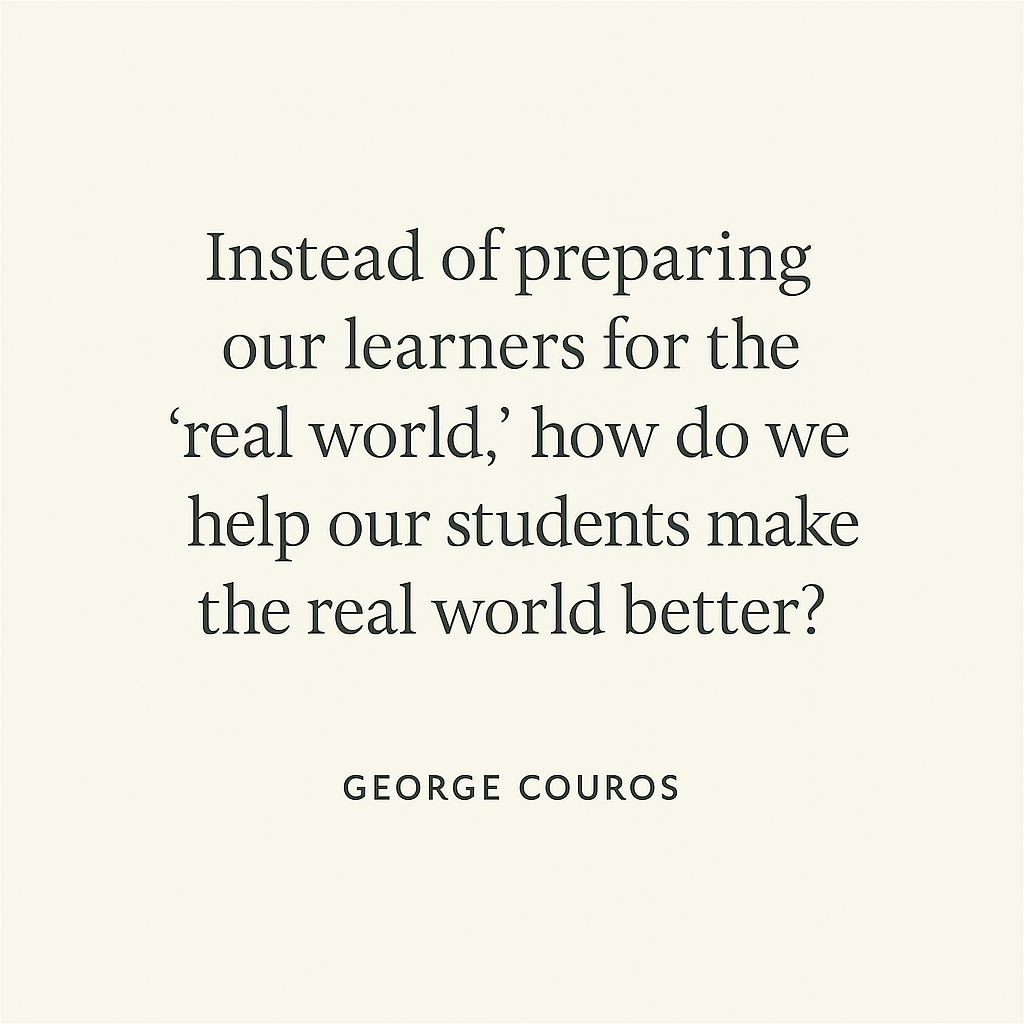This past week, while working with a group of administrators, a principal asked me about how I respond to the idea of preparing students for the “real world” in our schools today.
First of all, our students all live in the “real world” and are probably more aware of things today than I was at the same age. They do not go off to Mars at the end of each day. There is definitely a part of me that hates that awareness they have, as I think it is essential that kids have a childhood they enjoy.
The image below from @everyday.aotearoa has always resonated with me:

Secondly, my hope is not that we are preparing kids for the “real world” but helping them to see that they can make their communities better, both locally and globally, right now. The best way to ensure that students are ready to lead into the future is by giving them an opportunity to lead today.

Finally, do we use the “real-world” argument when it suits our needs, and dismiss it when it does not go with our own viewpoints?
For example, the “real world” is more likely to look at a student’s digital footprint than their grades when hiring for a job. Post-secondary institutions still look at scores and grades, but more of them are starting to pay attention to applicants’ online activities.
According to this article from KIS International School in Bangkok, seeing what
According to a 2017 survey administered by the “American Association of Collegiate Registrars and Admissions Officers,” 11% of respondents said they “denied admission based on social media content” and another 7% rescinded offers for the same reason. Subsequently, a 2018 Kaplan Test Prep survey found that about 68% of college admissions officers believed it was “fair game” to review applicants’ social media profiles to make admission decisions. The examples along with the survey results show this is not just hearsay, universities are checking and what you posts does matter.
If you read further into the article, the school suggests that institutions see what applicants are doing online as something that can be leveraged to their advantage:
Use social media to your advantage…showcase yourself to universities. Don’t just wipe your online footprint clean, this would also be a red flag! University admission officers want to enroll students that are community leaders, good contributors to society, and engaged individuals. Use your social media to highlight your strengths, your goals, and your accomplishments. The best applicants have strong digital footprints, showing their actions and engagements in and outside the classroom. Remember universities want to know that you’ll also contribute to their campus life and community. If you started a business, founded a club, earned a distinguished award, published an article, showcased your art, or anything worth noting, this is the content that should be reflected online.
If we know people are ensuring they look up social media footprints to make sure there is no bad information, what happens when they find someone who is doing great things?
As shared in April of 2025, this is now going beyond “Google Searches,” and opportunities are now finding people through AI queries as well. In that post, I shared the following:
We often discuss the ability to bring “experts” into our classrooms, but I believe it is vital to help students share their “expertise” with the world. This not only helps them “find a job” but may also ensure they have a better chance of an opportunity finding them.
Now, I am not saying that we shouldn’t pay attention to grades or scores, as much as I think there are better ways to understand the abilities, talents, and skills of any person, because those scores still play a factor in opportunities for our students today. But if the “real world” is also paying attention to what our students do online, are we paying attention to that as well, or dismissing it and saying that is not our problem?
As much as I am not a fan of traditional grading structures and processes in education, I do recognize it still matters in many parts of our world and would never tell a school not to worry about their “scores.” It still matters in some parts of the world.
And as much as there are negative issues and complexities with AI, Digital Footprints and other technologies, it doesn’t mean we shouldn’t pay attention to them. In fact, I would say that the only way we make it better is by paying attention to it. Not once in my life has a problem gotten better because I ignored it, but oftentimes, that strategy only made it worse.
Let’s never limit our focus on preparing students for the “real-world” because, only through teaching and learning, can our students ultimately make the “real-world” better.